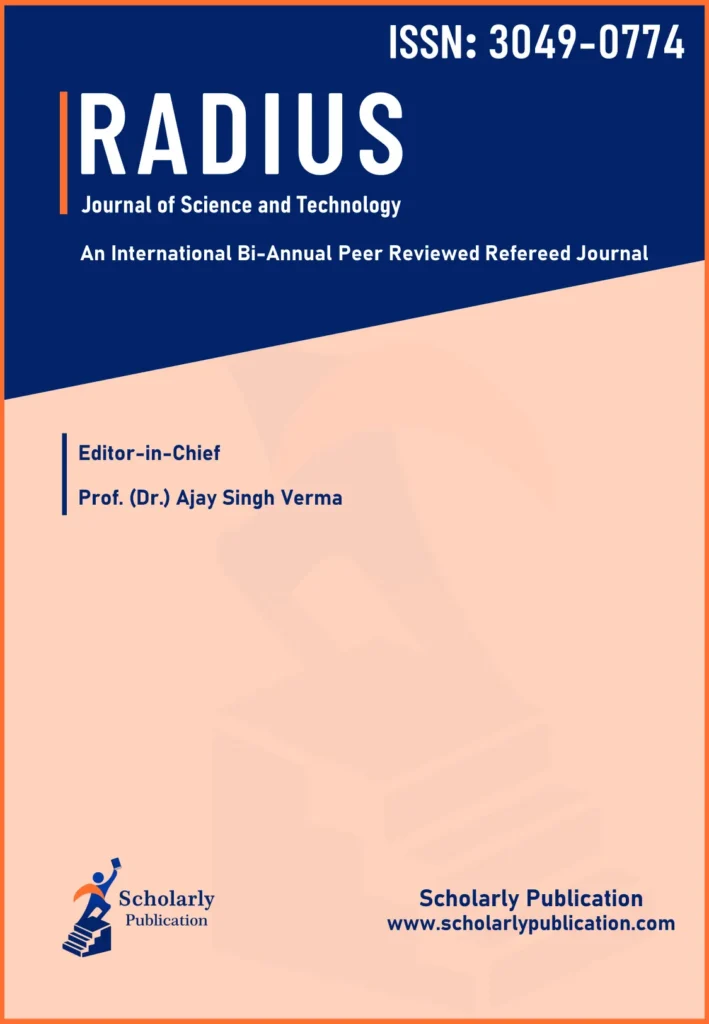
Radius: Journal of Science and Technology
An International Bi-Annual Peer-Reviewed Refereed Journal
About the Journal
Radius: Journal of Science and Technology is an open-access international bi-annual peer-reviewed refereed journal that publishes high-quality research dedicated to advancing the frontiers of Science and Technology. It serves as a platform for the propagation and discussion of significant research findings, cutting-edge innovations, …
Why Choose This Journal
- High Standards: Rigorous peer review ensures academic excellence.
- Interdisciplinary: Publishes diverse and innovative research across science and technology.
- Global Reach: Broad international readership for maximum impact.
- Rapid Publication: Streamlined process for timely research dissemination.
- Author Support: Comprehensive guidance from submission to publication.
- Open Access: Reach a wider audience with accessible research.
Choose Radius: Journal of Science and Technology for a trusted platform that values innovation and excellence.
For Indian Authors: ₹ 3000
For others: US$ 100
Article Processing Charge
03 Days
Median time from submission to first editorial decision before peer review
15 Days
Median time from submission to first decision after peer review
25 Days
Median time from submission to final acceptance after peer review and any author revisions
Editor-in-Chief View Full Editorial Board
Editor-in-Chief

Prof. (Dr.) Ajay Singh Verma
Anand School of Engineering & Technology, Sharda University Agra, Uttar Pradesh, India
